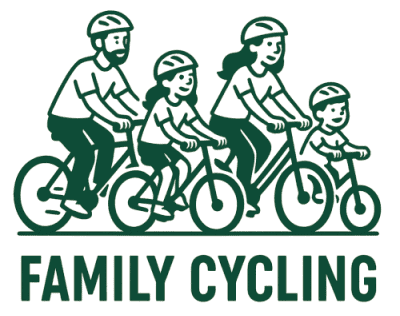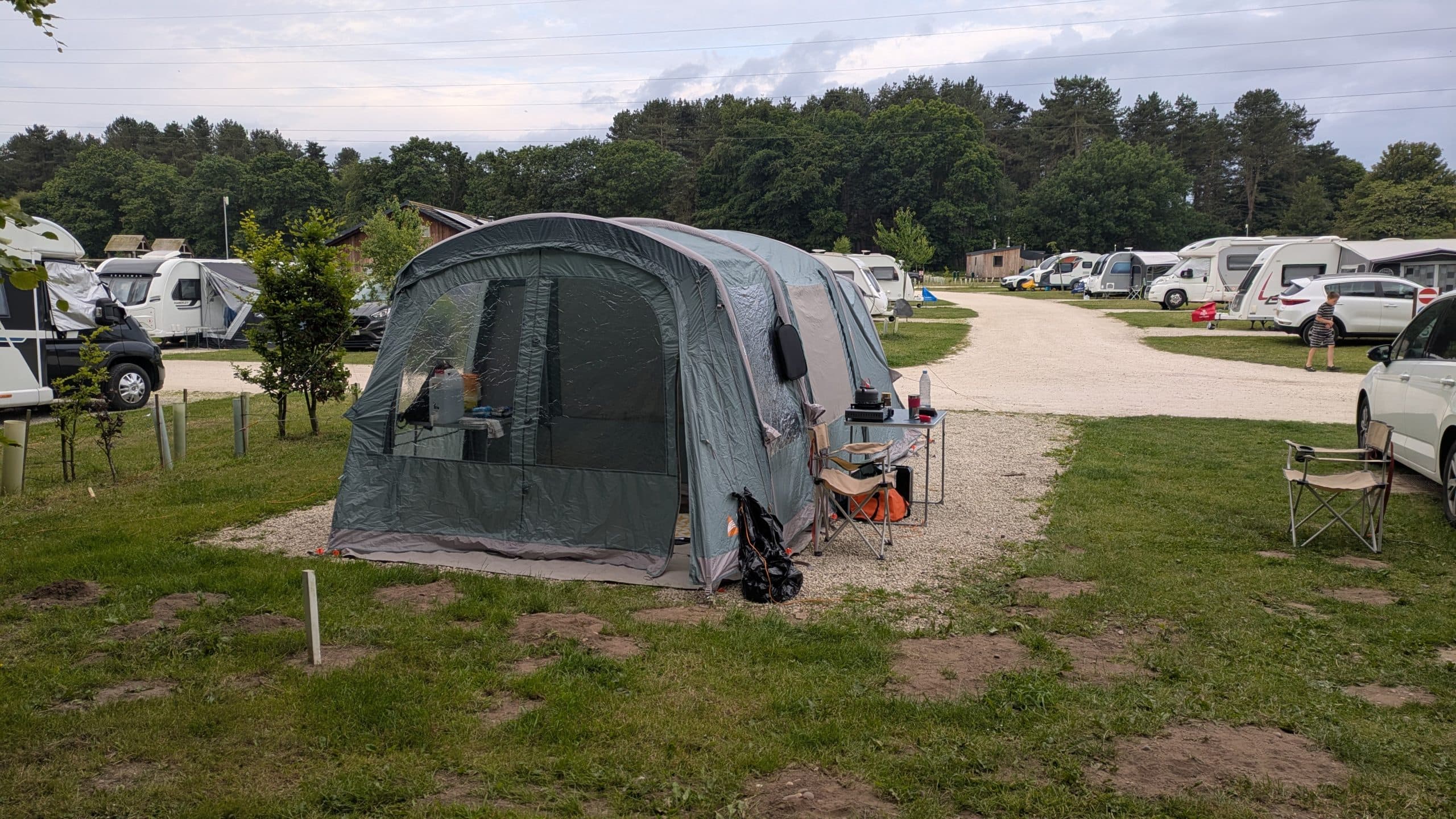Modern childhood often looks very different from a generation ago. Many kids today spend hours glued to screens and stay cooped up indoors, missing out on the free outdoor play that once defined youth. Children now spend about 50% less time playing outside in unstructured activities than their parents did in the 1970s
It’s a worrying trend – one reflected in health statistics: kids aged 8–18 average 7.5 hours per day on screens, and only around one in four gets the recommended hour of physical activity daily. As parents, how can we counter this sedentary, digital drift?
For our family, as well as actively promoting an outdoor lifestyle in everything we do, the answer has also been camping. Good old-fashioned camping trips in the great outdoors.
We’ve long been a cycling-crazy family, but we’ve learned that camping offers something even bigger: a way to get kids moving, learning, and thriving outside. It doesn’t matter if you have a tent, caravan or stay in a lodge as part of a campsite; the campsites themselves are where the magic happens.
They provide the adventure and freedom kids crave, with benefits that last far beyond the holiday.
In this article, we’ll explore why camping is so important for kids today. From the core life skills it teaches to the joys of unstructured outdoor play, here’s a definitive look, backed by research and experience, at what makes camping such a fantastic gift for children in the modern world.
Building Confidence, Independence and Resilience
One of the greatest benefits of camping with kids is how it helps them grow into confident, capable individuals. Out at the campsite, away from the comforts of home, children have the chance to take on new responsibilities and challenges.
They perhaps learn to pitch tents, integrate with fellow campers (and make friends), and problem-solve when things don’t go exactly as planned. Rather than parents doing everything, camping naturally pushes kids to step up and try things for themselves, whether it’s figuring out how to hammer in tent pegs or finding the way back to your campsite on a map.
These hands-on tasks build real self-reliance and independence. Kids absolutely light up with pride after they’ve learned a new camping skill or have the confidence to go make new friends at the play area. It pushes them out of their comfort zone and the easy nature of their homelife.
Research shows that these experiences aren’t just fun in the moment; they translate into lasting growth. A study by the American Camp Association found significant growth in children’s self-esteem, independence, leadership, and decision-making skills after a session of camp. In other words, when kids spend time away from home in an environment like camping, they come back more sure of themselves and their abilities.
In the UK, as children progress through primary school, the school tends to organise residentials and time away from home (in a way to build resilience). These tend to be ‘camping’ trips or ‘outdoor centres’. Parents can achieve the same level of fun for their children via campsites on a weekend or during school holidays.
In fact, “stripped back” camping life can be a great teacher. Without their usual gadgets or the conveniences of home, kids learn to appreciate the simpler things and focus on experiences rather than stuff. This contrast is healthy; it builds gratitude and resilience while also encouraging them to be less dependent on the trappings of modern luxury.
Learning New Skills
A campsite is one giant classroom for teaching practical life skills in a fun, memorable way. During a camping trip, kids inevitably pick up a variety of new skills that they might never learn in a classroom or at home.
For example, Barney and Matilda have both learnt to hammer tent pegs in, have helped empty the chemical toilet, fill up our water supply and how to pack up and roll a sleeping mat. These are skills which ordinarily they wouldn’t learn, but are important practical skills for life.
Furthermore, we have a dishwasher at home, so washing up just isn’t on our radar. At a campsite, this is a family collaboration effort. Again, this is a skill they may not learn, but will serve them well in later life.
These experiences give children a sense of achievement and competence. When a child successfully helps pitch the family tent or helps carry a 10-litre water container back to the tent, it boosts their confidence in their own abilities. We all get a natural dopamine hit from a sense of achievement.
Another huge skill that camping strengthens is teamwork and communication. In the outdoors, everyone in the family needs to pitch in to make things run smoothly. Kids & parents often have to work together; whether that’s setting up camp, going to the shop to grab croissants (this is Matilda’s job when we venture to France) or doing the washing up. Life on a campsite has slightly more friction vs the comfort of modern life so it involves teamwork to make things tick.
These moments teach children how to cooperate and communicate their ideas. They experience what it’s like to be part of a team working toward a common goal (even if that goal is as simple as getting everything washed up so we can go back to the park and play).
Camping gives them a safe space to encounter little problems and practice solving them, which is fantastic for cognitive development and resilience. They learn that with a bit of creativity and teamwork, most challenges can be overcome. Those are exactly the kinds of real-world problem-solving skills that benefit children in school and beyond.


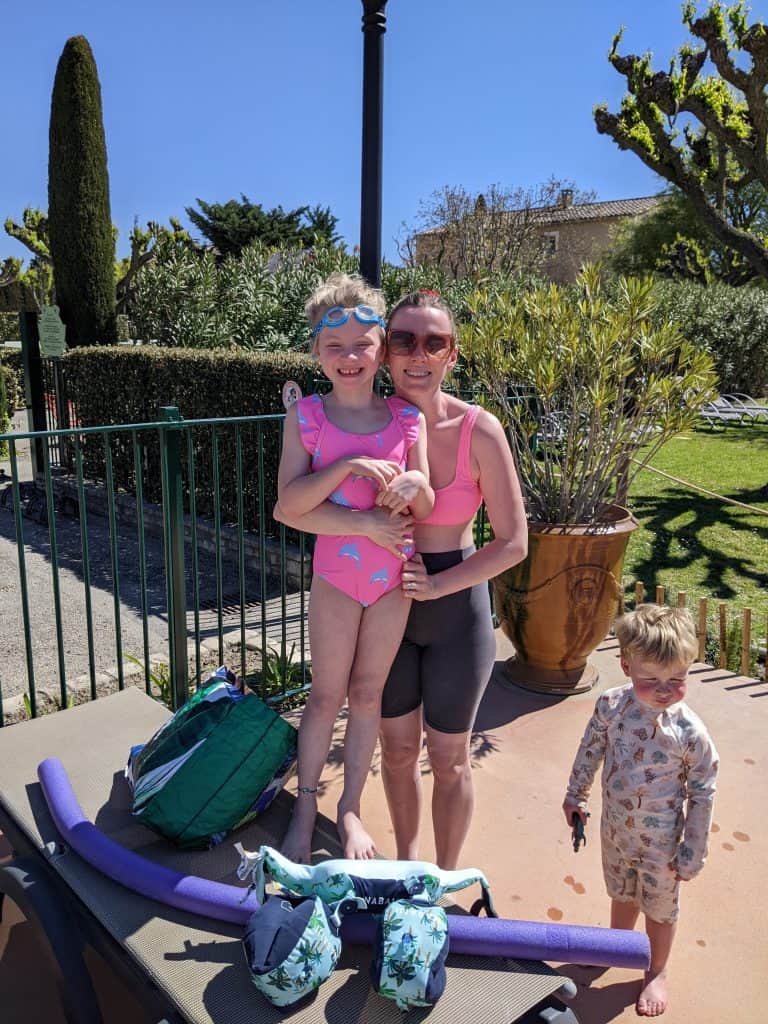


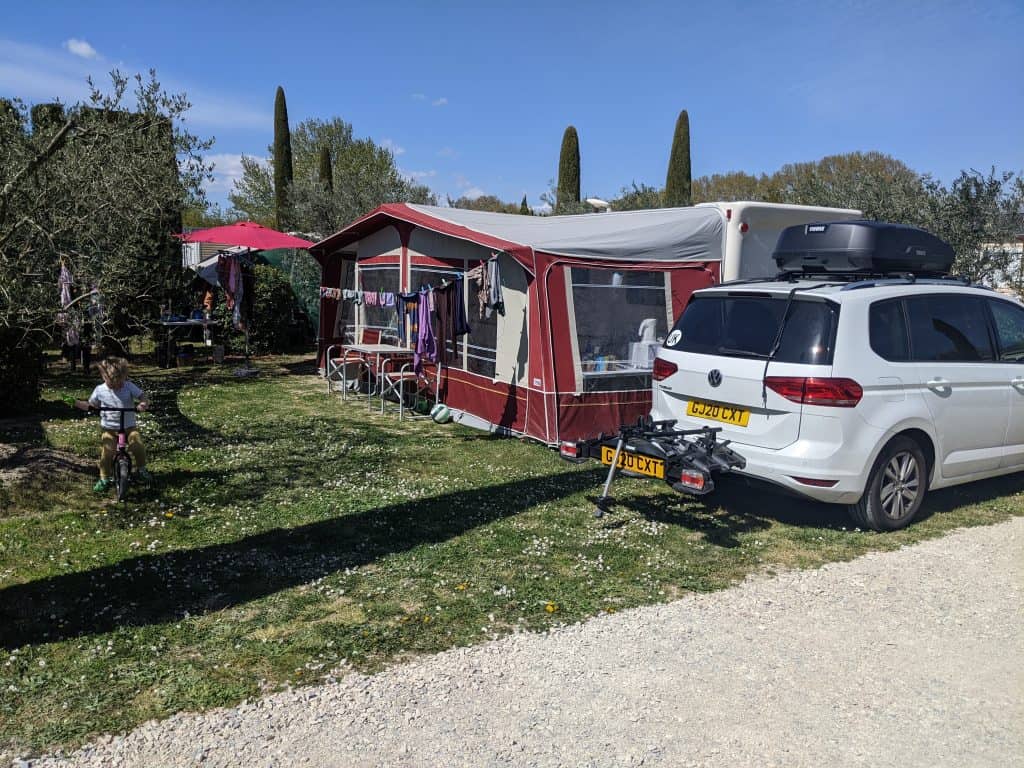
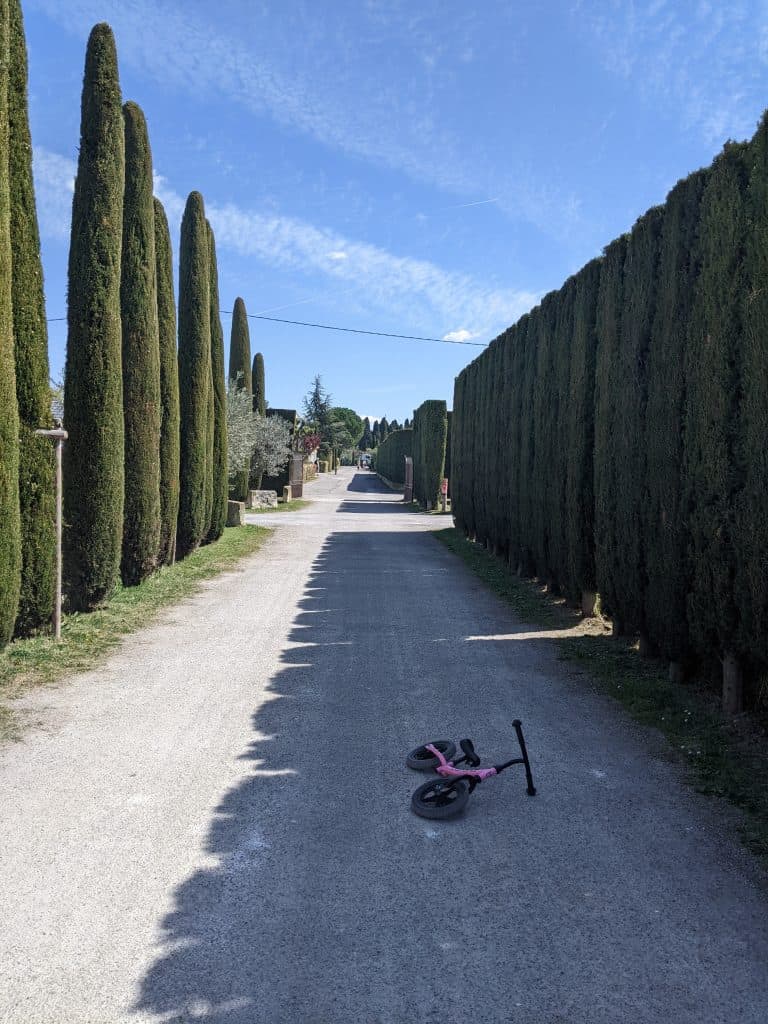
Unplugging and Encouraging Outdoor Play
It is said that Children aged between 5-16 spend at least 6 hours a day looking at screens – split between gaming, television and mobile phones.
Camping is a remedy for this. Although modern campsites offer free wifi and can typically pick up phone reception, it isn’t something the kids focus on. The energy of the campsite takes over.
On a camping trip, children quickly forget about screens and instead turn to the endless entertainment the great outdoors provides. On our UK camping trips, there are always kids out playing; whether that’s in the play area, on their bikes or with a game. Matilda loves going to the play area and tends to make friends very quickly.
On our trips to France and the campsite we stay at in the South, there’s a significant number of British and Dutch children. They play hide and seek with walkie-talkies around the campsite. Kids are outdoors for hours! Furthermore, other activities are centred around the pool, which enables them to build a key life skill. Both our children are confident around swimming pools, and it’s become a key sport for Matilda in her life. We put a lot of this down to the exposure and time at a campsite.
Research consistently finds that unstructured outdoor play boosts children’s creativity, imagination, and even mood. One camping blog noted that being in nature forces kids to unplug from technology and get creative and imaginative. Without the crutch of screens, kids rediscover their innate ability to have fun with whatever is around them. This kind of play develops creativity and problem-solving in a way that screens can’t. It’s real-life play and real-life encounters.
In short, camping trips replace artificial stimulation with natural wonder. They give children a chance to be kids in the real world – to get dirty, to be outside, to discover things firsthand instead of through a screen.
The break from devices can also do wonders for mental health. Both our children need no encouragement to enjoy camping, but in the Winter months, when these things are more challenging, you certainly notice a difference in screen time.
That’s not just our imagination: studies have found that time in nature reduces stress and anxiety in children, improving their mood and focus. Where camping differs from hotels is that it’s ‘stripped back’ and ‘outdoor play’ whereas hotels are catered around more stimulus. It’s a mental reset and a healthy dose of outdoors, which, although on the surface may not seem it, it will give your body and mind the rest it needs.
So when you unplug on a camping trip, you’re not just getting away from emails and chores – you’re giving your children a mental reset and a healthy dose of the outdoors that their minds and bodies genuinely need.
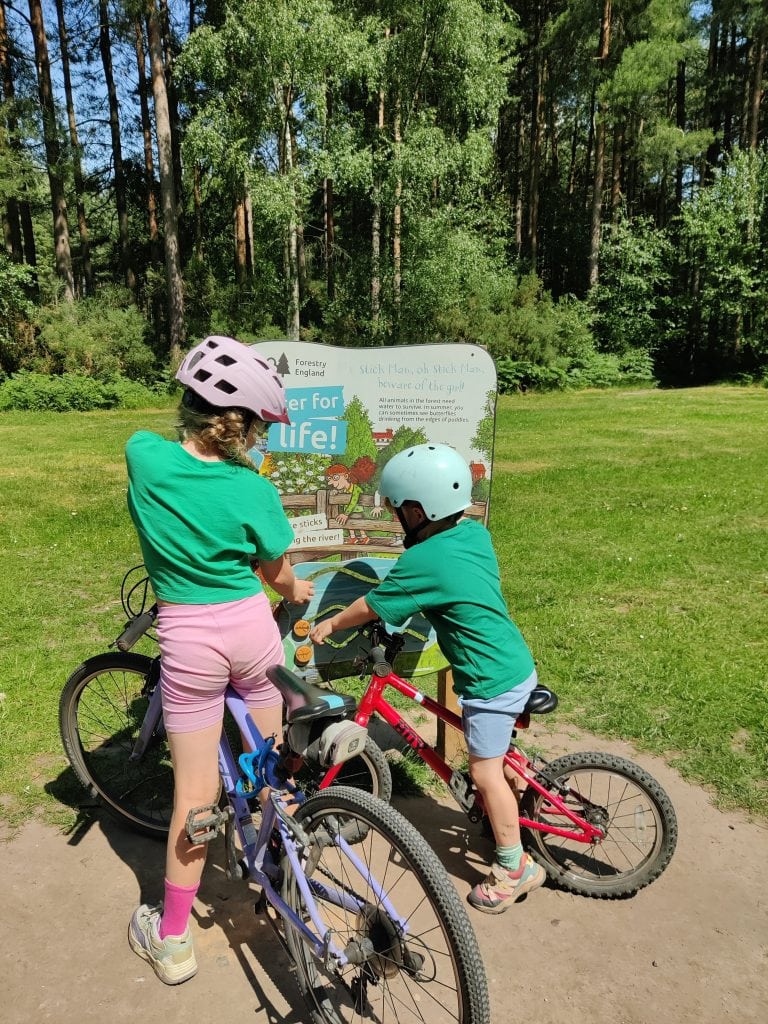
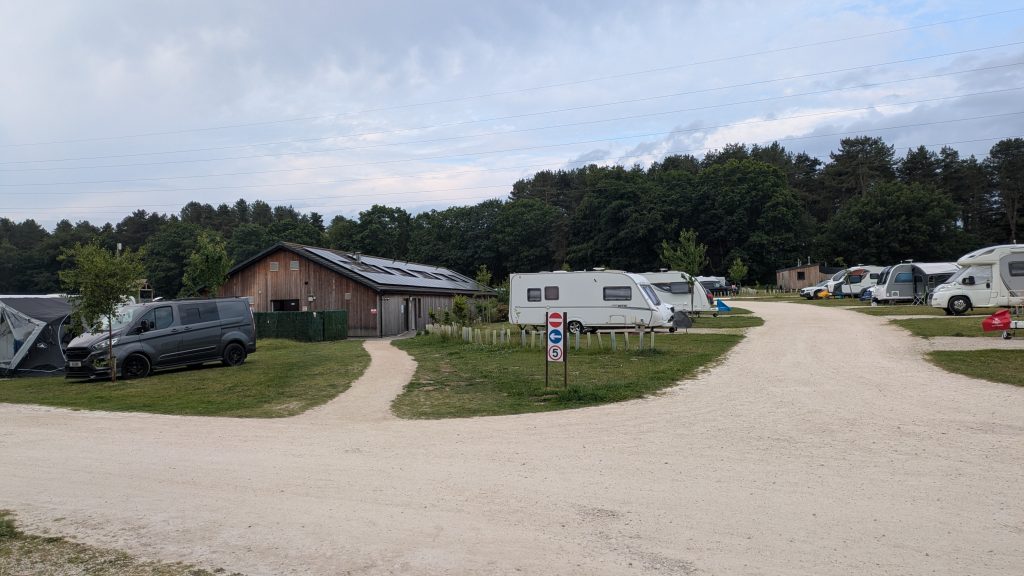
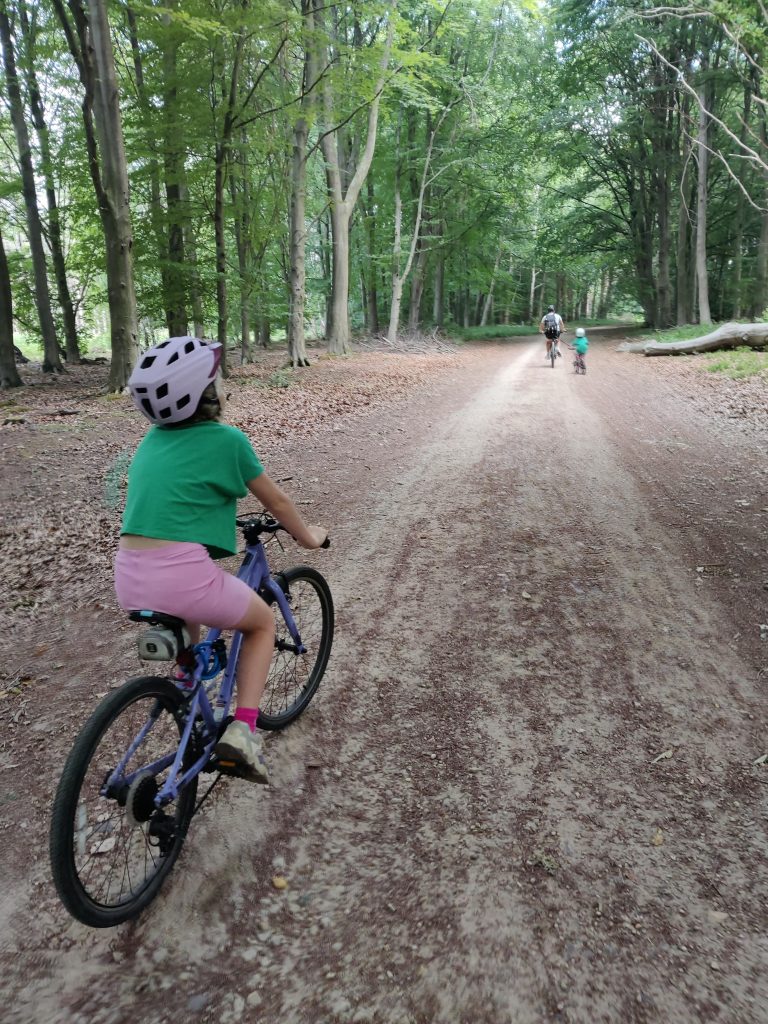
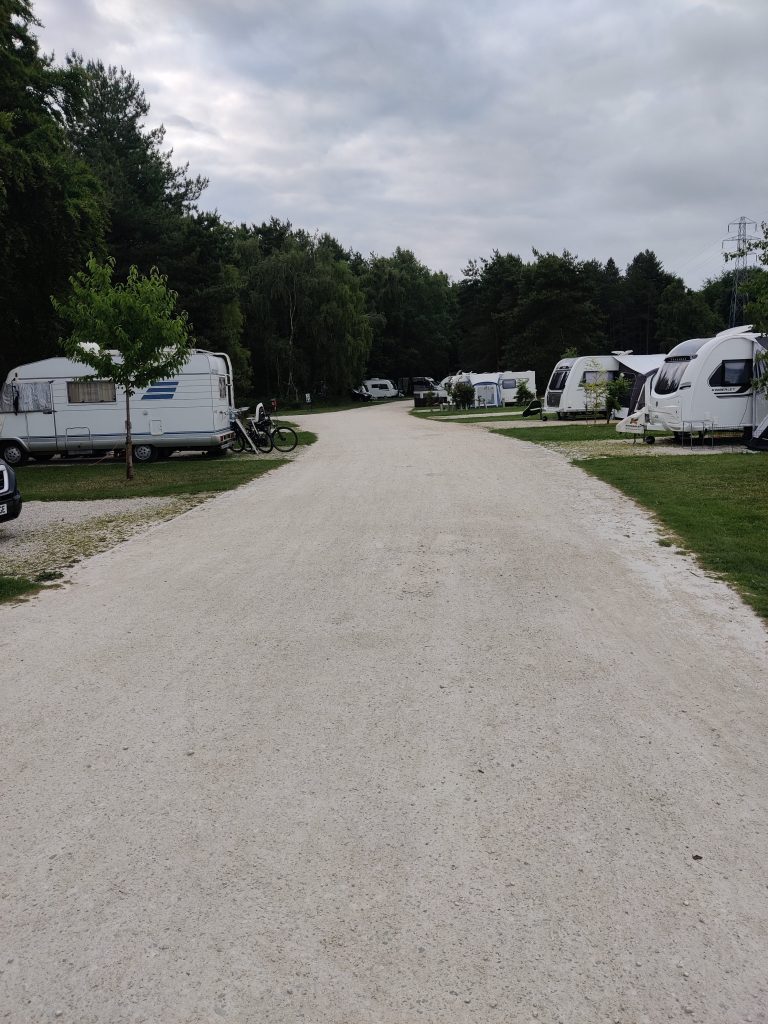
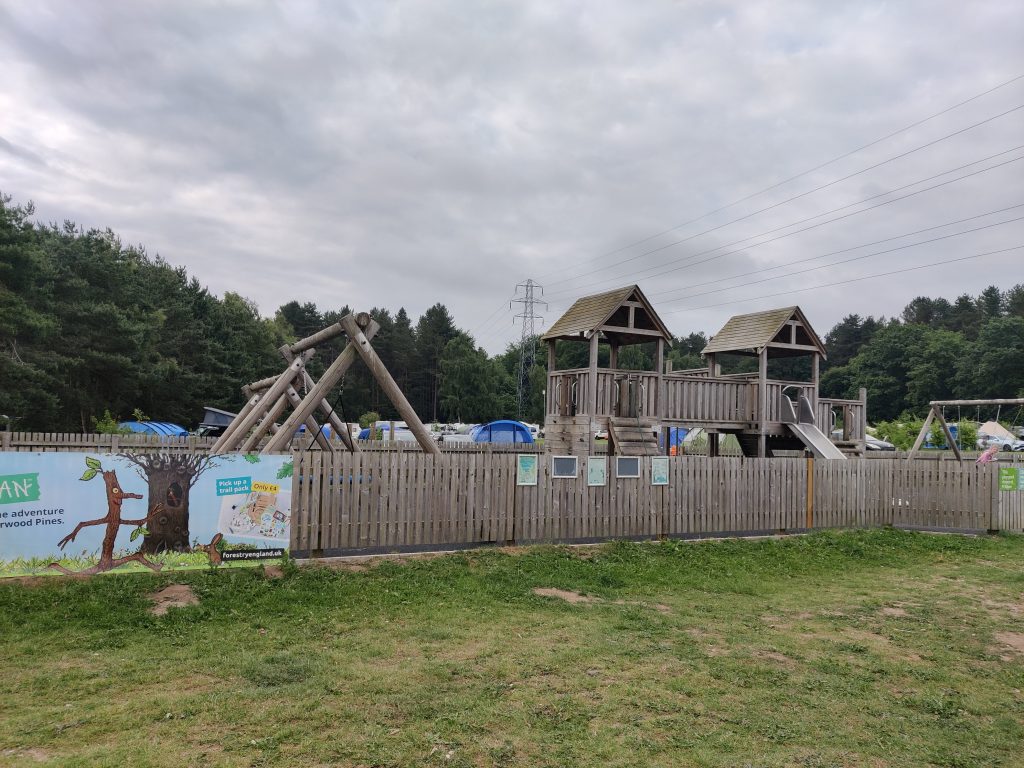
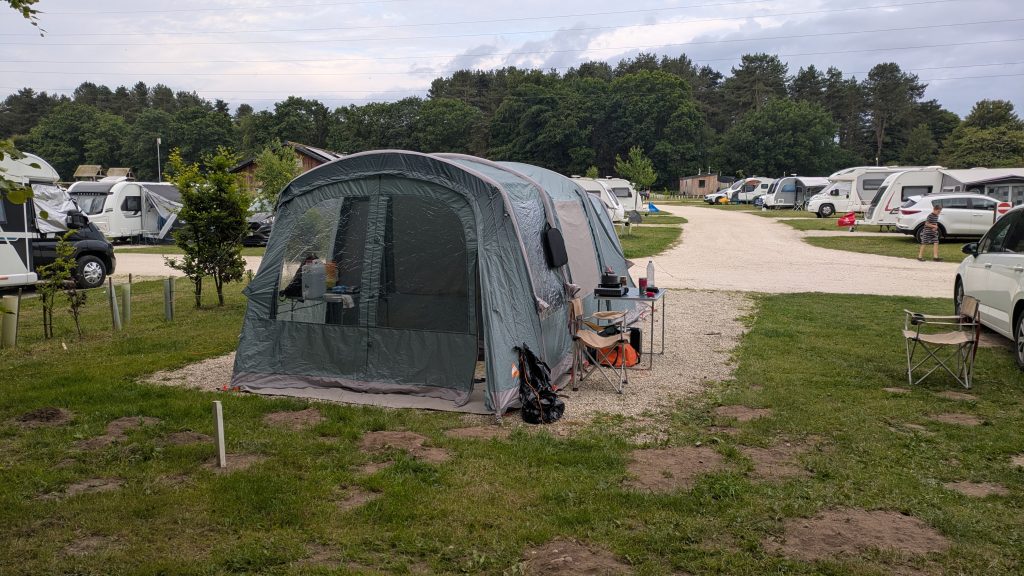
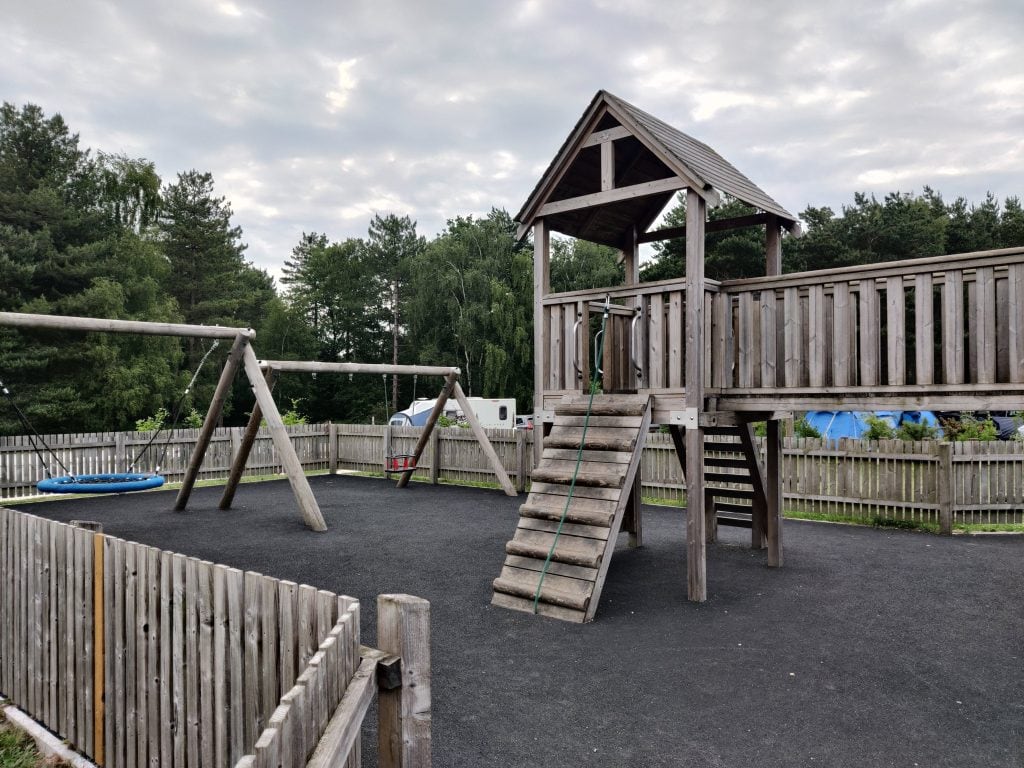
Healthy Bodies: Active Kids Away from the Couch
One of the most obvious (but crucial) benefits of camping is how much physical activity naturally comes with it. Camping gets kids moving – a lot! It doesn’t matter whether you stay in a tent, a caravan, a campervan or a lodge on a campsite; it’s the environment which is immediately geared to movement.
Unlike a typical day at home, where hours can slip by in sedentary activities or where physical activities are more ‘structured’, a day at camp might include walking to fetch water, going on a long bike ride, playing in the pool or going to the play park! It’s basically the opposite of being stuck on the couch.
For many kids (and parents), camping trips reveal that exercise isn’t a chore, it’s a natural part of having fun. Hike up a hill to catch a view, paddle a canoe across the lake, skip stones in the river, go for a family bike ride on a scenic trail; it all gets the heart pumping and the muscles working, but nobody’s thinking about it as “exercise,” just adventure.
This boost in activity is more important now than ever. We know childhood obesity and inactivity are serious issues today. As mentioned earlier, only about 20–25% of children are meeting daily physical activity recommendations. Regular camping trips can help change that on an individual family level. Over a week of camping, kids might accumulate hours upon hours of moderate to vigorous activity without even realising it.
They return home stronger, fitter, and often inspired to keep up an active lifestyle. We’ve been regularly road tripping and staying on campsites throughout Europe since 2022. This typically involves bike rides, lake/pool/river swimming and all sorts of outdoor play. They’ve both got stronger and more competent as a result of this.
Now, let’s talk about cycling, since that’s our family’s favourite way to play outside. Many campsites are a biker’s paradise for kids. Unlike busy city streets, campsites are typically relatively safe, contained environments with low traffic (often just a few slow-moving cars or a 5mph speed limit for folks driving to their spot). This makes it ideal for even young children to ride their bikes with a sense of freedom. We make sure all of our Summer camping spots are kid and bike-friendly, meaning they can roam around and gain confidence. It’s less structured and enables them to pick up this key skill naturally.
The skills they learn on the campsite are the reasons we love them vs any other holiday accommodation.
Beyond biking, camping often comes packaged with many other outdoor sports and activities. Depending on where you go, your kids could get to try canoeing, kayaking, or paddleboarding on a lake. They might play swimming pool games if the campground has a pool, or splash in a river if you happen to stay in a campsite near a river path. We stayed near Verdon Gorge in France, and the campsite had its own river beach. The kids spent hours on a rubber ring going down the river. Great exercise and super fun!
Compared to a hotel where a family might end up with some physical activities, but it’s more structured, a campsite holiday encourages near-constant movement and play. By the end of the day, the kids are pleasantly exhausted (and so are we!). It’s the kind of healthy tired you feel after a day well spent.
In summary, camping cultivates an active lifestyle in children. This mindset is so important for instilling lifelong healthy habits. Kids who associate exercise with fun experiences, like biking to the campsite shop to grab a croissant or down to the pool for hours of swimming, are more likely to stay active as they grow up. And given the sedentary temptations of modern life, that is a priceless gift we can give our children.
Family Bonds and Social Skills
Some of our family’s sweetest memories and strongest bonds have been formed while camping. There’s something about spending quality time together outdoors, without the usual distractions, that brings families closer. Camping with your kids means you’re all sharing a small space, cooperating on daily tasks, and experiencing the same new adventures. This naturally leads to more conversation, teamwork, and bonding than the typical busy home routine, where everyone might be off doing their own thing.
We have a Google image display in our house, and it’s full of our summer adventures. The kids constantly refer to the things we did, the fun we had. It’s formed some of our fondest memories and will continue to do so.
Even research backs this up: family camping trips tend to build stronger relationships through shared experiences and cooperation.
Importantly, camping gives kids a chance to develop social skills and new friendships beyond the family, too. Campsites are usually very social places. Kids tend to find other kids to play with at the campsite. Both our children have made life-long friends at campsites, some of whom we stay in touch with. The campsite we use as our ‘base’ in the South of France has many returning visitors, and we’ve caught up with families we had met previously.
It’s wonderful to see how quickly children make friends when they’re outside playing.
Making new friends this quickly is the kind of interaction that teaches kids how to introduce themselves, include others in play, and navigate meeting new people, all valuable social skills. Without the usual constraints of other environments, campsites can feel freeing; kids often play with others of various ages and backgrounds, learning to cooperate and share.
One notable aspect is that campgrounds often feel like safe, close-knit communities where the usual strict rules are a bit relaxed. We’ve found ourselves allowing our children a bit more freedom to roam than at home, precisely because the environment feels secure and everyone’s looking out for each other.
As mentioned earlier, letting your child bike around the campsite or go to the campsite shop without you is a great way for them to learn independence and build confidence. Matilda had her first trip to the campsite shop to buy pastries. We’d give her money, she’d order in French and come home with baked goodies and change. This taught her important social skills, too. and the ability to converse with adults without her parents as a crutch.
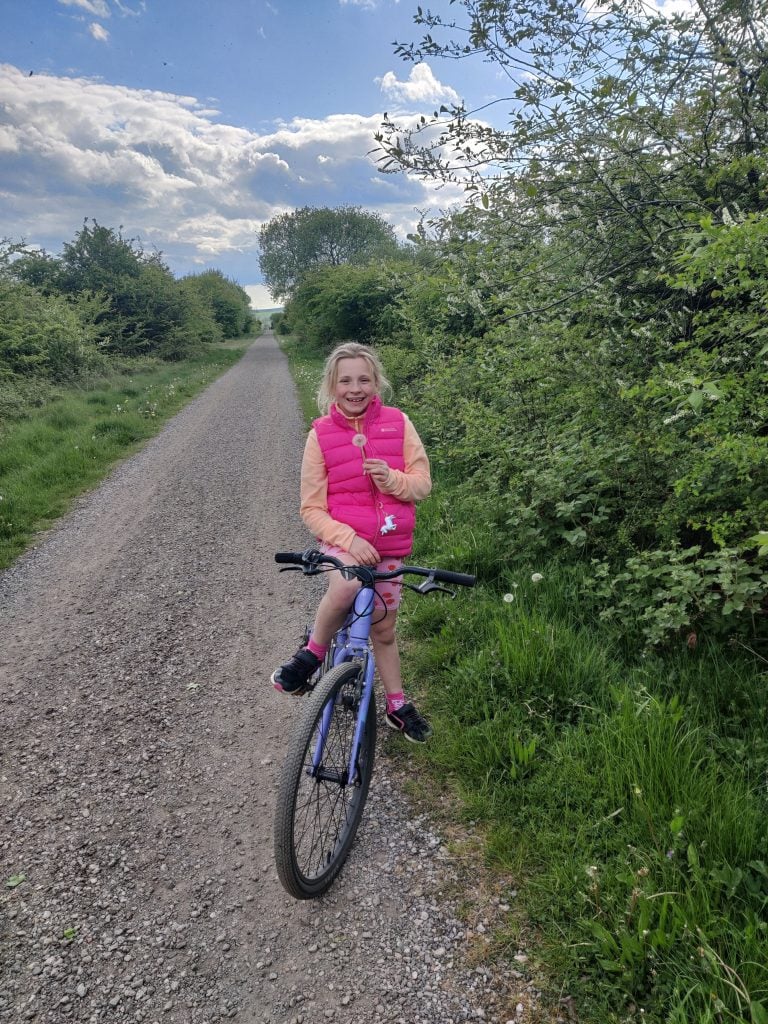
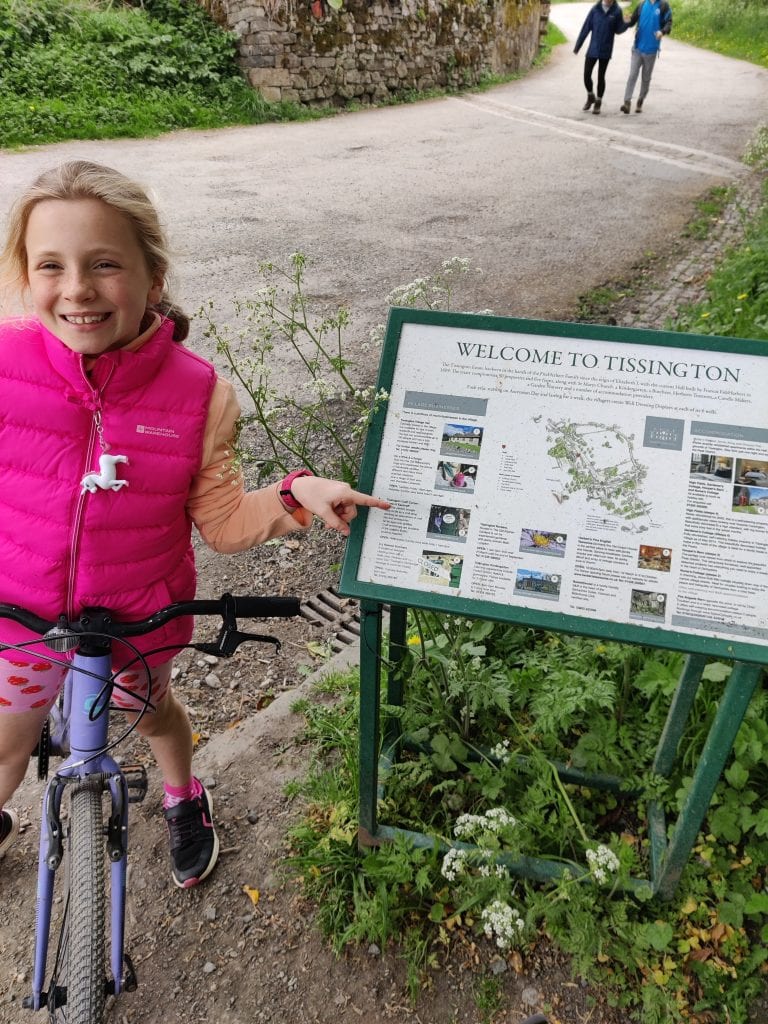
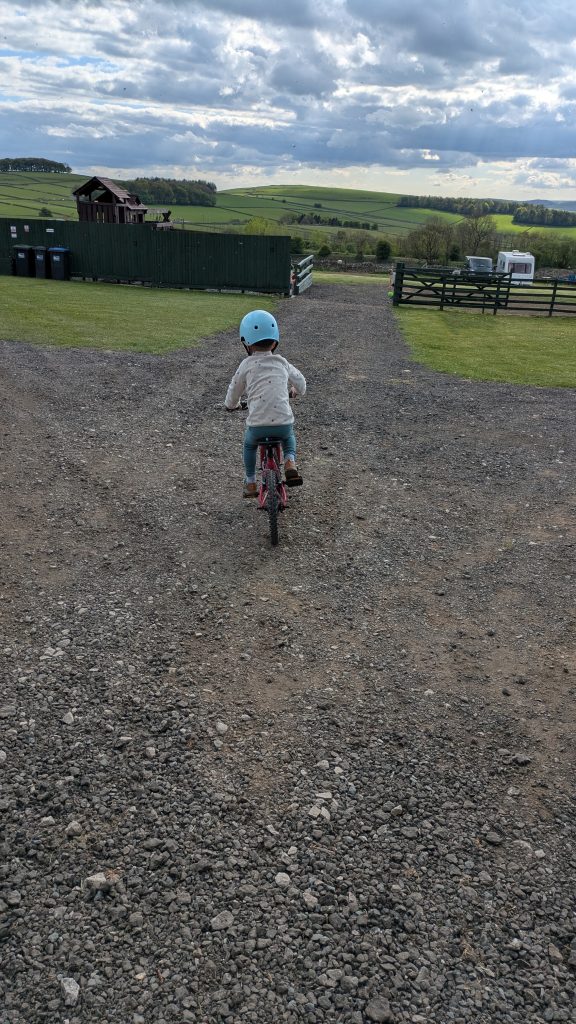
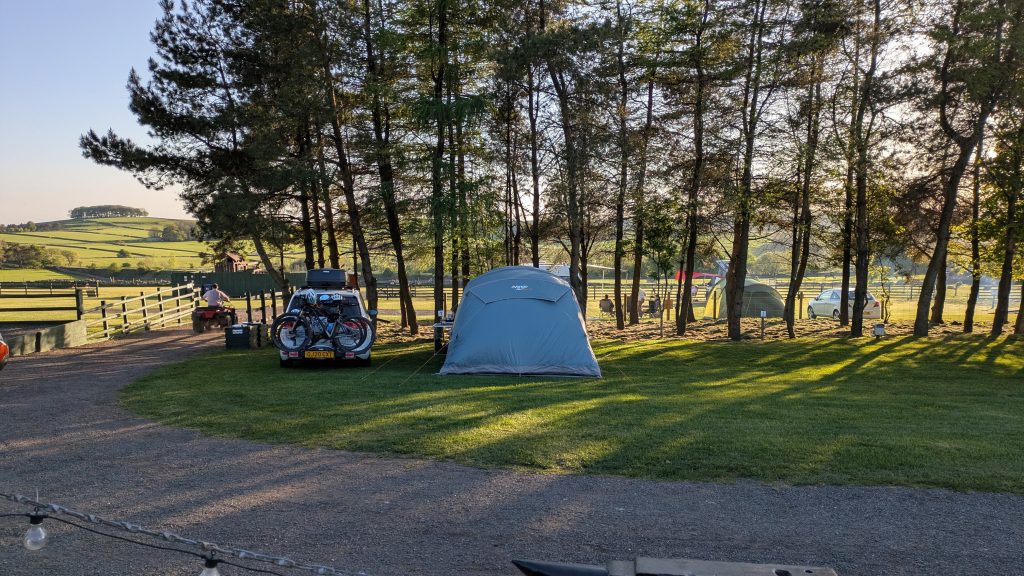
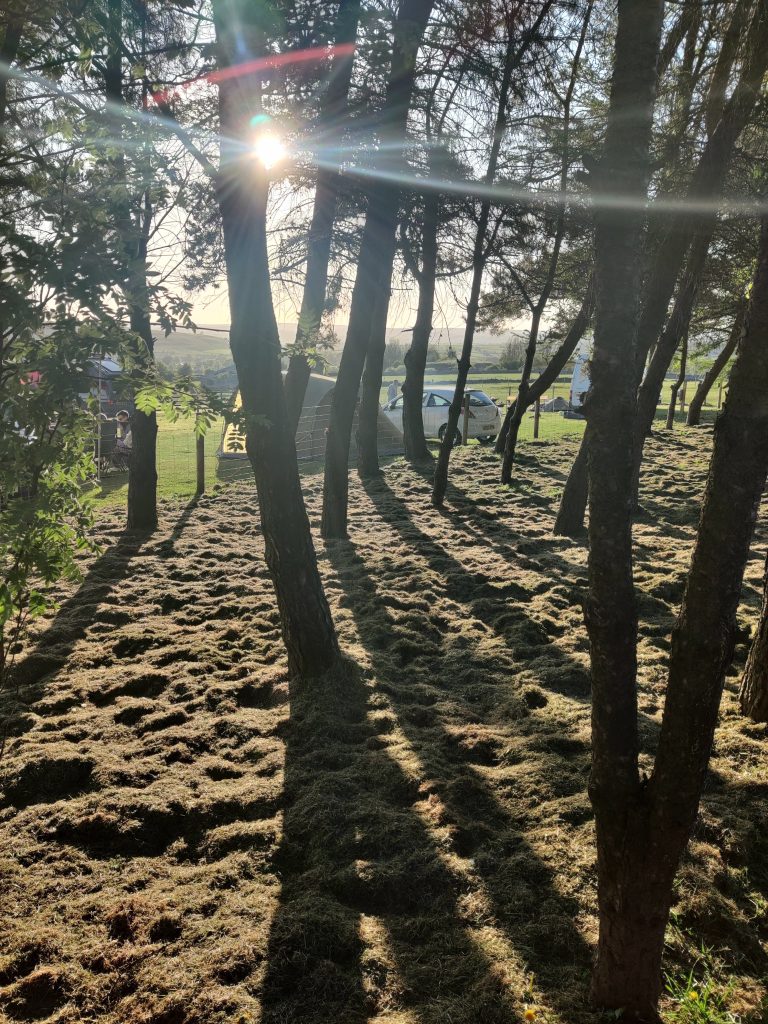
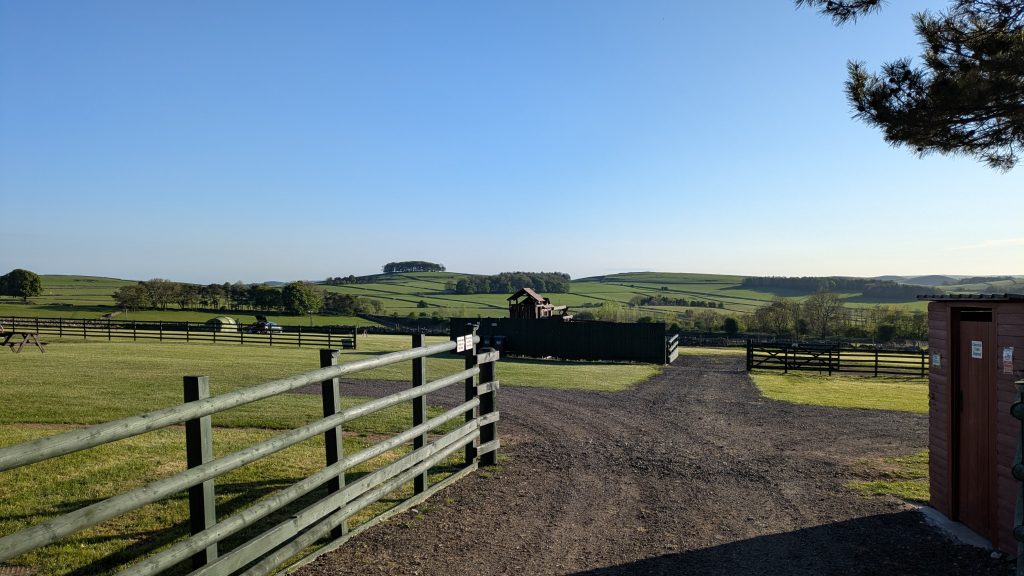
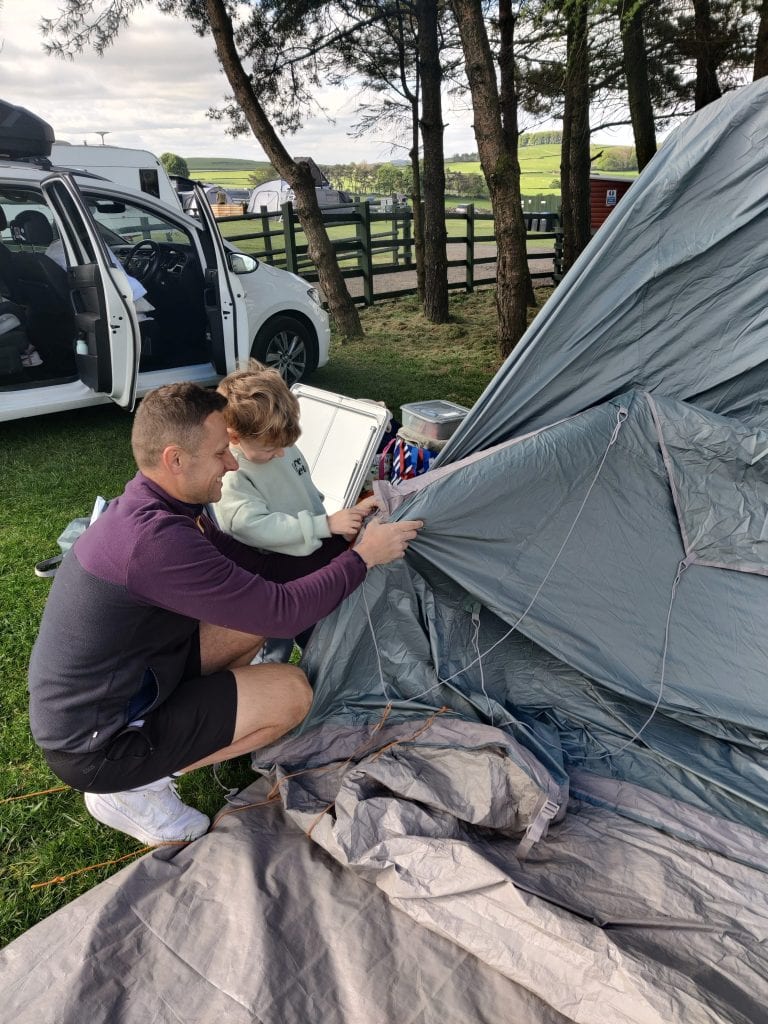
A Lifeline in a Sedentary, High-Tech World
Zooming out, it’s clear that camping is more than just a holiday; it’s a purposeful push back against some unhealthy trends in modern life. As parents, many of us worry about the effects of too much screen time, too little physical activity, and the overall indoor, sedentary childhood that has become all too common.
We see kids who would rather live in virtual worlds than the real ones, or who get anxious without their phones. We see the allure of convenience and comfort making it harder for kids to appreciate simple joys.
From our perspective, it’s something we will continue to instil in our children as we have seen the battles friends can have with their children. For some people, we know it sometimes feels like an uphill battle to get the family outside when compared to the instant gratification of gadgets and streaming media.
This is why camping is so important today and why we have instilled this in our children from the beginning.
Campsites, whether basic or fancy, provide an environment where nature and active play are the default, not the afterthought. Even the fanciest campsites with WiFi, modern lodges and home conveniences have outdoor play as the primary focus.
Crucially, camping can help address some health issues by offering a healthier routine, almost by design. Worried about your kids sitting all day? Take them camping and you’ll find they hardly sit down! (through choice!)
One article in Smart Parenting put it beautifully: in this digital era, we need to sometimes “slow down, bask in the sun, count the stars… and indulge in real-time family connection – not the ones found on apps.” Camping offers exactly that opportunity.
Additionally, by making camping (and outdoor activities in general) a regular part of your family’s life, you send a powerful message to your kids: that nature, adventure, and physical activity are valuable and worth prioritising. They become stronger, more capable children. So much so it flows into other areas of their life (cycling to school, sports clubs)
Kids who grow up with positive outdoor experiences are more likely to continue seeking nature and staying active as they grow older, which can benefit their health and happiness long-term. From our perspective, camping is a modern luxury, the luxury of unplugging and living simply, which is something which is extremely difficult to attain in a connected world.
In a society where childhood obesity, anxiety, and attention issues are on the rise, camping is like a wholesome remedy hiding in plain sight. It’s relatively low-cost, accessible (there are campsites everywhere at varying costs), and effective. It’s hard to spend a weekend camping and not get some exercise and fresh air.
The importance of camping with kids, in our opinion, is more crucial than ever. It addresses so many facets of a healthy, balanced childhood in one joyful package. We’ve been camping in varying levels of comfort for over 3 years now. We were late bloomers but in a society where comfort is abundant, it’s a stripped-back approach to childhood.
All kids should go camping.
Sources
- U.S. Centers for Disease Control and Prevention (CDC) – “Screen Time vs. Lean Time” Infographic. (Kaiser Family Foundation data on kids spending 7.5 hours on screens daily.)archive.cdc.gov
- University of Kansas Medical Center News – “2024 US Report Card on Physical Activity for Children and Youth.” (Oct 9, 2024). (Only ~20–28% of children get 60 min of exercise daily; modern society has made life more sedentary.)kumc.edukumc.edu
- Chestnut Ridge Campground Blog – “Benefits of Camping for Kids: Building Skills and Memories.” (Nov 18, 2024). (Lists key benefits of camping for children: independence, teamwork, nature connection, fitness, creativity, resilience, family bonds, lifelong skills, adventure, memories.)chestnutridgecampground.comchestnutridgecampground.comchestnutridgecampground.com
- RJourney Camping Blog – “Benefits of Camping With Kids.” (Highlights skill development, confidence, creativity from unplugging, increased physical activity, and stronger family bonds.)rjourney.comrjourney.com
- Harvard Graduate School of Education – “Lessons from Camp.” (Usable Knowledge series, 2016). (Cites an ACA study showing growth in children’s self-esteem, independence, leadership, and decision-making after camp.)gse.harvard.edu
- VacationMaybe Travel Blog – “Riding a bike at the campground…” (Dec 23, 2015). (Parent’s perspective on giving kids independence at camp: riding bikes in a safe campground environment.)vacationmaybe.com
- Good Sam Camping Blog – “Biking With Kids While Camping – A Must!” (Apr 5, 2014). (Encourages bringing bikes on camping trips for family fun and exercise.)blog.goodsam.com
- Smart Parenting – April Kristel Llana, “14 Family-Friendly Campsites To Check Out.” (Oct 30, 2024). (Introduces camping’s benefits: real-life connections vs. digital, quotes “10 benefits of camping with kids” from RaisingHikers.com.)smartparenting.com.phsmartparenting.com.ph
- Alliance for Childhood – “The Loss of Children’s Play: A Public Health Issue.” (2010). (Statistic on 50% reduction in children’s outdoor play since the 1970s.)web.mit.edu
Last Updated on July 9, 2025 by Ryan
Hello. I am Ryan and along with my wife Beth and our two children Matilda and Barney, we love all things cycling and exploring. We spend our weekends exploring fun places to cycle and discover and wanted to help other people do the same too. There’s no better way to travel than via bike and it’s an amazing activity for the whole family to enjoy.
